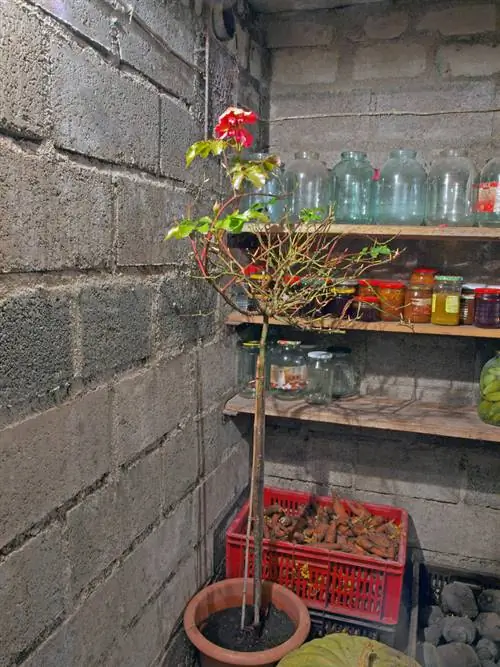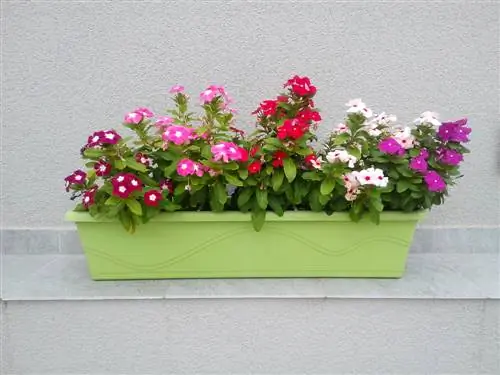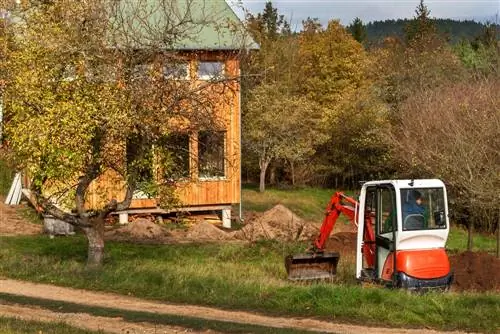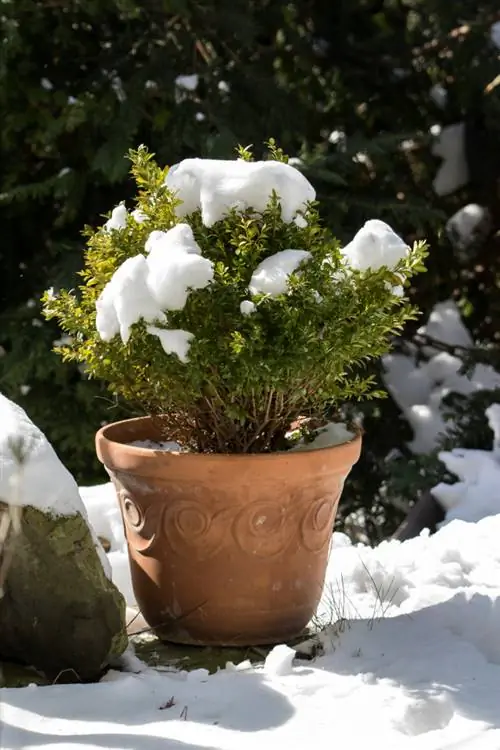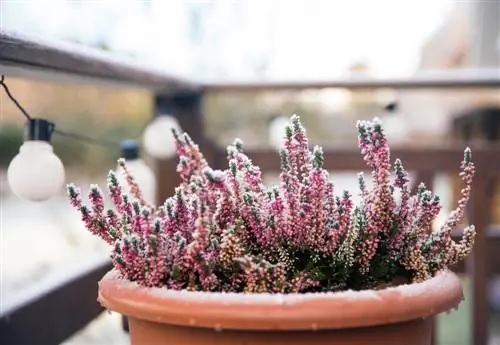- Author admin leonars@hobbygardeners.com.
- Public 2023-12-16 16:46.
- Last modified 2025-01-23 11:21.
The most beautiful balcony plants come from warm climates and have not learned to adapt to winter conditions. There is often uncertainty among balcony gardeners as to how the exotic flower beauties will get through the cold season he althy and happy. This guide briefly and concisely explains how balcony plants can properly overwinter in the basement.
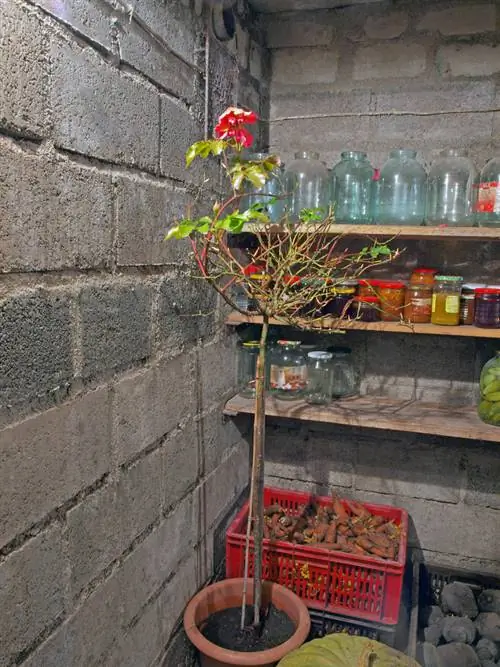
How do I properly overwinter balcony plants in the basement?
In order to successfully overwinter balcony plants in the basement, the room should be 5-10°C cool and dark, ideally supplemented with daylight lamps. Water deciduous plants sparingly and evergreen plants moderately, do not use fertilizer and check daily for pests.
This is how the basement becomes a winter quarters for balcony plants
Mediterranean and subtropical balcony plants are primarily suitable for the cool, low-light conditions in the basement. Tropical ornamental plants are not prepared for such light and temperature conditions. The following premises are important if wintering in the cellar is to be successful:
- The cooler the room, the darker it can be
- Ideal conditions: 5 to 10 degrees Celsius as well as supplementary lighting with daylight lamps (€21.00 at Amazon)
- Just water deciduous balcony plants little by little
- Water evergreen winter guests moderately so that the root balls do not dry out
- Do not give fertilizer
- Check for pests daily
A combination of temperatures well over 10 degrees Celsius and low light conditions brings even the most robust balcony plants to the edge of the abyss. If you have planned a heated living cellar as your winter quarters, supplementary lighting for 8 to 10 hours a day is crucial.

